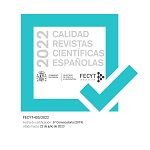La invocación del acervo de la Organización Internacional del Trabajo en la jurisprudencia social del Tribunal Europeo de Derechos Humanos. (RI §414324)

The invocation of the acquis of the International Labor Organization in the social case-law of the European Court of Human Rights -
Susana Sanz Caballero
Pese a que la mayoría de los derechos que contiene el CEDH sean de carácter civil y político, con el tiempo el TEDH ha conseguido desarrollar una jurisprudencia social basada en técnicas como la de las implicaciones sociales de los derechos civiles y políticos, las obligaciones positivas de los Estados o las consecuencias de la aplicación del principio de igualdad. En dicha jurisprudencia el TEDH ha tenido en ocasiones la oportunidad de invocar la normativa aprobada por la OIT o servirse del trabajo de sus órganos. El objeto de este artículo es identificar, clasificar y analizar de modo crítico la jurisprudencia en la que el TEDH se ha valido del Derecho y la práctica de la OIT.
I. INTRODUCCIÓN.- II. LA OIT EN LA JURISPRUDENCIA DEL TEDH SOBRE LA PROHIBICIÓN DEL TRABAJO FORZADO Y LA ESCLAVITUD.- III. LA OIT EN LA JURISPRUDENCIA DEL TEDH SOBRE LA VIDA PRIVADA Y FAMILIAR.- IV. LA OIT EN LA JURISPRUDENCIA DEL TEDH SOBRE LA LIBERTAD DE EXPRESIÓN.- V. LA OIT EN LA JURISPRUDENCIA DEL TEDH SOBRE EL DERECHO DE REUNIÓN Y ASOCIACIÓN. 1. Demandas en las que el reclamante es persona jurídica. 2. Demandas en las que el reclamante es persona física. 2.1. Participación en partidos políticos. 2.2. Participación en sindicatos y asociaciones profesionales.- VI. CONCLUSIONES.-
Despite the fact that most of the rights contained in the ECHR are of a civil and political nature, the ECtHR has succeeded in developing a social case-law. This social case-law is based on techniques such as the social implications of civil and political rights, the positive obligations of States or the consequences of applying the principle of equality. Within this social case-law, the ECtHR has sometimes had the opportunity to invoke the rules adopted by the ILO or the practice of its organs. The purpose of this article is to identify, classify and critically analyze the EctHR’s social case-law in which this European court has used the law and the practice of the ILO.
I. INTRODUCTION-. II. THE ILO IN THE ECtHR CASE-LAW ON THE PROHIBITION OF FORCED LABOR AND SLAVERY.- III. THE ILO IN THE ECtHR CASE-LAW ON THE RIGHT TO RESPECT TO PRIVATE AND FAMILY LIFE.- IV. THE ILO IN THE ECtHR CASE-LAW ON THE FREEDOM OF EXPRESSION.- V. THE ILO IN THE ECtHR CASE-LAW ON THE THE RIGHT TO ASSEMBLY AND ASSOCIATION. 1. Claims where the applicant is a legal entity. 2. Claims where the applicant is an individual. 2.1. Participation in political parties. 2.2. Participation in trade unions and professional associations -. VI. CONCLUSIONS.-

 DIRECCIÓN / MANAGEMENT
DIRECCIÓN / MANAGEMENT